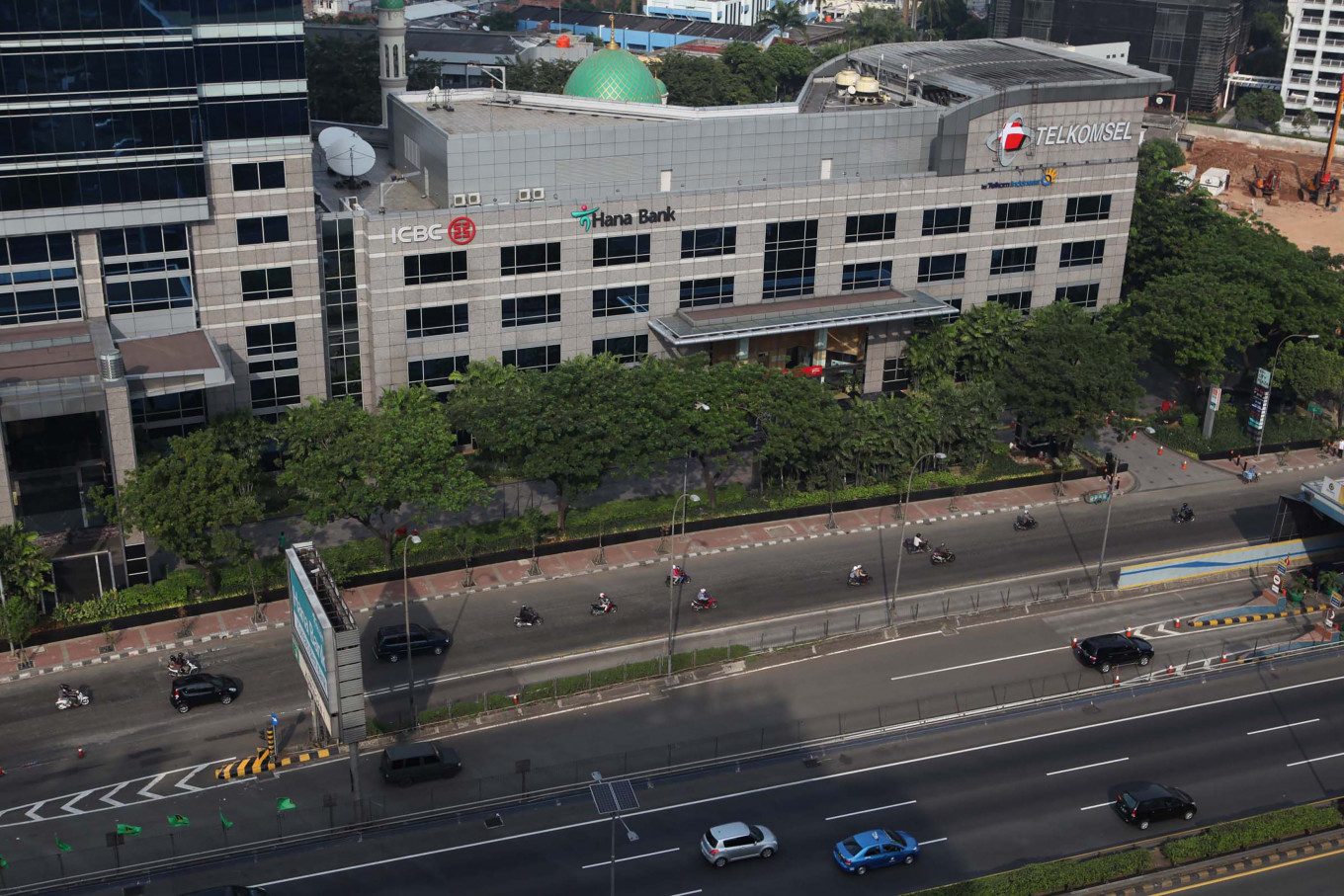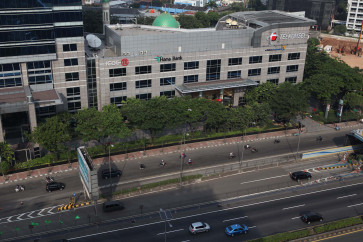Popular Reads
Top Results
Can't find what you're looking for?
View all search resultsPopular Reads
Top Results
Can't find what you're looking for?
View all search resultsAnalysis: No easy feat to link Musk’s Starlink with Indonesia
Change text size
Gift Premium Articles
to Anyone
N
egotiations are under way for Starlink, a satellite-based broadband service owned by billionaire Elon Musk, to operate independently in Indonesia and provide internet services directly to Indonesian consumers. However, reaching a deal has become a challenge as Starlink must first meet local terms and conditions already set in place.
Plans for Starlink to operate independently in the country using a business-to-consumer (B2C) model had surfaced last month following Coordinating Maritime Affairs and Investment Minister Luhut Pandjaitan and Health Minister Budi Gunadi Sadikin’s meeting with Musk in the United States. During this meeting, Budi proposed for Starlink to provide fast internet connectivity for community health centers in frontier, outermost, and remote (3T) regions, while Luhut explained that the government had chosen Starlink due to its relatively low cost of services.
Subsequently, on Sept. 18, the Communications and Information Technology Ministry met with representatives of SpaceX, Elon’s company responsible for managing Starlink, to further discuss Starlink’s future operation in Indonesia.
The ministry emphasized that there is an array of local regulatory requirements that Starlink must fulfill for it to operate independently in the country, namely owning an Indonesian legal entity. Only then will Starlink be able to apply for supporting licenses, such as an internet service provider (ISP) license, a network access point (NAP) license, and a license for operating a closed network. Additionally, Starlink would also need to adhere to regulations such as the domain name systems (DNS) content blocking regulation.
Starlink’s potential operation in Indonesia has also sparked concerns over the fate of the country’s telecommunications industry. It is feared that Starlink, with its low cost of services and direct access to consumers, could seize the industry’s existing market. More so since SpaceX claims that Starlink could offer internet speeds of up to 350 Mbps, which, according to a report from US-based internet testing and analysis company Ookla, is eight times faster than the average mobile internet download speed in Indonesia at 21 Mbps.
In particular, telecommunication company XL has voiced its concern over this matter. According to the company, Starlink’s operation in Indonesia must be on the same level playing field for business players in the telecommunication industry. The company added that it is the government’s responsibility to ensure the sustainability of this industry.
Following these concerns, Communications and Information Technology Minister Budi Arie Setiadi gave an assurance that the presence of Starlink would create no harm to the telecommunications industry as companies in this industry can still compete with each other in a healthy and fair manner. Budi also emphasized that the government would provide the same level playing field between Starlink and other telecommunications companies, stating that no special privileges would be granted and that any company could operate in Indonesia “as long as they comply with the prevailing regulations”.



















